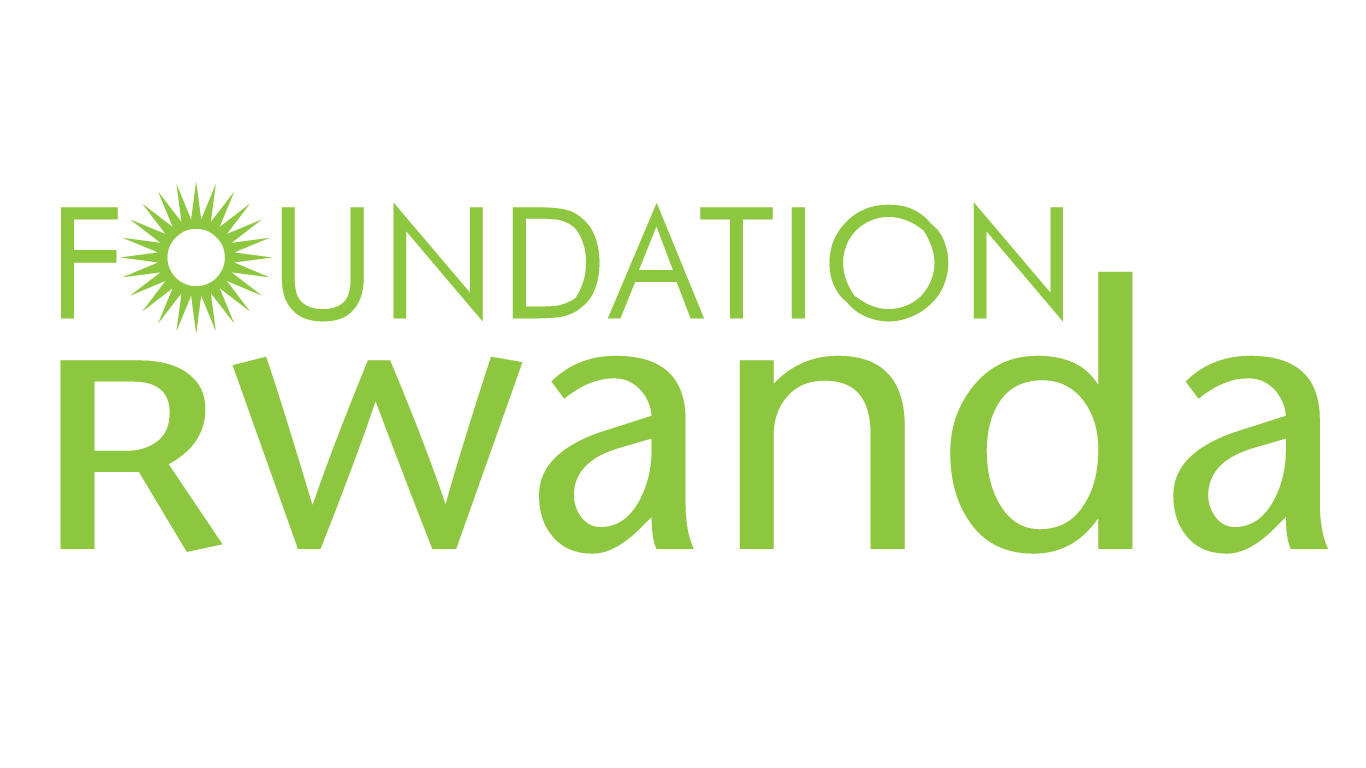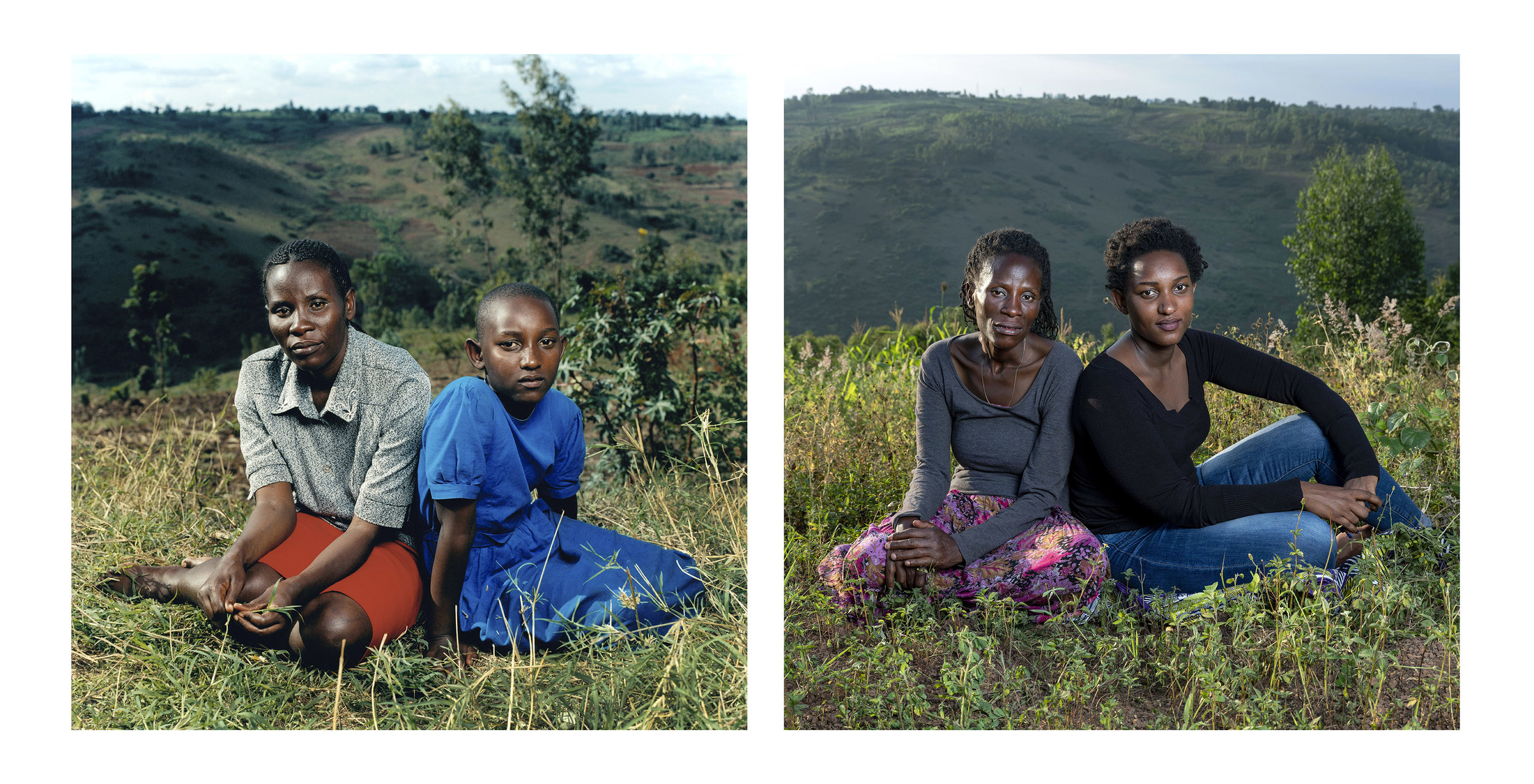Alice and Her Mother, Justine
Kayonza, Rwanda
Justine and Alice.
I always asked my mother about my father and about how I was born, but she would avoid telling me. But then one day she had been away at a counseling workshop, and when she came back I asked her to tell me about it. So she called me and said “You know, the sessions were about women who were raped during the genocide, and today I wanted to tell you about the things I have been avoiding telling you about who your father is because I was raped during the genocide and as a result you were born.” After she told me this I felt sad but I pretended to be strong because I didn't want her to also break down or feel more depressed, I pretended that I was strong but inside I was sad, at the same time I was happy to know the truth.
After my mother told me about what she went through during the genocide, I remembered what I saw in the documentaries I have seen, about women victims of genocide rape, so I knew exactly what it was all about, all I wanted was to hear from her, and now that she told me I didn't ask her any questions because I knew a lot about what happened to women during the genocide, at the same time I was careful not to make her feel depressed that she had to speak about this with me, so I decided that what she told me and what I have seen was enough.
The relationship with my mother improved after she disclosed to me that I was born from the genocide rapes because she told me the truth.
Life has improved and is still getting better, you remember when we met 12 years ago, I was in primary school, now I have completed secondary school and started university and I am a strong young woman, so life is getting better and I think it will improve even more. It used to be so sad. Now I feel free. I had questions when I was young about my father and I think now that I know what the circumstances that led to my birth were, and I know about how I was born, I feel free and better in my life.
When growing up I was reserved and spent time with my mother. I avoided going where there were children with their parents. I didn't want to feel like I was in an environment where other kids had both parents and I didn't, so I spent time with my mother. Some of the parents of students I attended school with knew my mother so they would tell my fellow students, “oh, that girl was born as a result of genocide.”
I do not feel the need to know who my father is, it would probably make me sad to know who he is. The fact is, my father was among the killers and did things worse than animals can do. I would not want to identify with him, so I don't want to know, because I don't think he is a normal human being, I prefer not even knowing him, or identifying with him. The effects on me are that I feel my father contributed to the horrible things that happened in Rwanda and I don't feel good about having been born from someone like that, so it feels like if people would know how I was born, they might be looking at me like someone who was connected to the people that did bad things and identify with them.
-Alice, daughter of Justine, 2018


